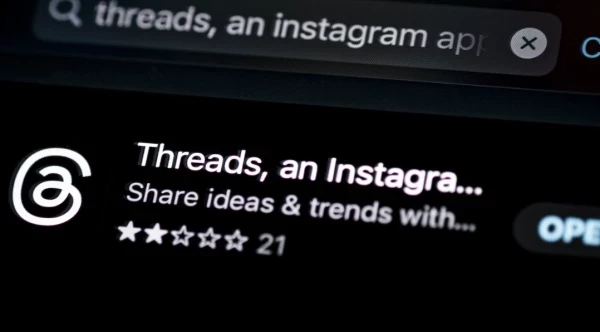What's Going on With Online Reviews?: How 'Review Bombing' Hurts Customers
Add bookmark
In the digital economy, customers spend more time reading reviews than ever before. What started as a simple feedback tool has become an influential factor in many individuals’ entire online purchasing process. In 2021 alone, online reviews are expected to influence $3.8 trillion of global eCommerce spend, according to a new study.
When framed effectively, these personal reviews can have a clear impact on consumers. But, as users begin to place more weight on the comment section, this power may not always be a positive thing. Recently, some online reviewers have been accused of using the feedback mechanism as a malicious tool to seek ‘revenge’ on certain brands or products they may have never even used.
This technique, called ‘review bombing’ is becoming a serious threat to local businesses and creators alike — by amassing unexpected influxes of unfavorable feedback, commenters can take control of the review section to downgrade or unfairly stigmatized a product or service.
It is frequently leveraged on sites like Goodreads, where reviewers are able to take a more subjective stance on a person’s work or creative style. Further, these instances of negative feedback can have a devastating effect on an individual’s entire career, beyond just an unfair criticism. Some have gone so far as to use the ‘review bombing’ strategy as a tool to scam authors and creators. In a recent case, author Beth Black received an email from an anonymous server threatening her, requesting for her to pay for positive reviews or have her work plagued by an influx of negative reviews. After reporting the email to Goodreads, she noticed her ratings fall on the platform and an increase in 1-star reviews. And she’s not alone, according to the expose in Time Magazine, many authors have been targeted by ‘review bombers’, specifically ones who are more vocal or public on social media.
Additionally, this isn’t limited to just one platform, and it often doesn’t have to do with the product itself. These instances can begin before a product is even released, leaving little to no substance for commenters to even review yet. For example, film review site Rotten Tomatoes saw consistent plummeting ratings for unreleased or upcoming films and decided to permanently disarm user ratings until after it opens in theaters.
While these instances clearly represent an unfair and unpleasant reality for the creative industry, these actions are also being used to hurt local businesses, which may not be able to recover from an abundance of negative reviews. In a recent case, Yelp introduced a new filter allowing users to search restaurants that had “proof of vaccination required” and “all staff fully vaccinated.” Upon including this information, the site has put out more than 100 unusual activity alerts on businesses that have been review-bombed and removed over 4,500 reviews that violated its current content policies. It has also apparently been an ongoing problem, Yelp’s VP of User Operations told Eater, “Tackling ‘review bombing’ incidents has become an increasingly significant issue in the online review platform ecosystem…” And for small businesses on Yelp, who may have already struggled amid pandemic-related shutdowns, this is yet another obstacle to overcome.
What it Means For The Customer
Tactics like ‘review bombing’ are incredibly harmful to almost everyone involved. They are a definitive threat to the company in their unfair rating system, and they are dangerous for customers who may take this criticism at face value. However, beyond the initial impact, these inaccurate reviews can also impact the future of the customer experience.
If a brand is receiving consistent negative reactions, they are unable to identify the true sentiment of their customers. Additionally, companies that value feedback and work to tirelessly innovate and adopt new policies in response to this information end up suffering from dishonest reviews. While these cases are often subjective, and many customers may be able to point out insincere reactions, this trend could become particularly harmful as eCommerce becomes even more popular.
In these cases outlined, the initial trigger of a ‘review bombing’ attack was often a social media comment or a particular public stance, meaning that this kind of behavior could continue to reoccur if a brand posts publicly about a particular cause or concern. Although this may ultimately have nothing to do with the product or service itself, it ends up perpetuating unfair stigmas against brands for personal biases.
Further, it’s worth considering the impact of smaller-scale ‘review bombings.’ For example, when customers have a single poor experience, like a rude waiter at a restaurant, they may feel inclined to leave a poor review. Although the claim may have some truth to it, if a customer reacts strongly enough, they may end up criticizing the entire restaurant experience, even though it may only have to do with one factor. This leaves a potentially unfair impression of a company and can skew the review section to deter others from interacting with a brand.
Therefore, these tactics go against the entire purpose of online reviews. Instead of acting as valuable peer feedback, these ‘review bombs’ render the review section almost useless as customers and companies have to decipher whether or not these criticisms are based on fact or a reaction to an unrelated concern. To mitigate the impact of ‘review bombings’, companies should work to provide a consistent experience, that avoids risks of this kind of attack. Additionally, they should work to implement a strategy that prioritizes swift and empathetic responses to frustrated customers to help avoid future ‘review bombing’ cases.






















